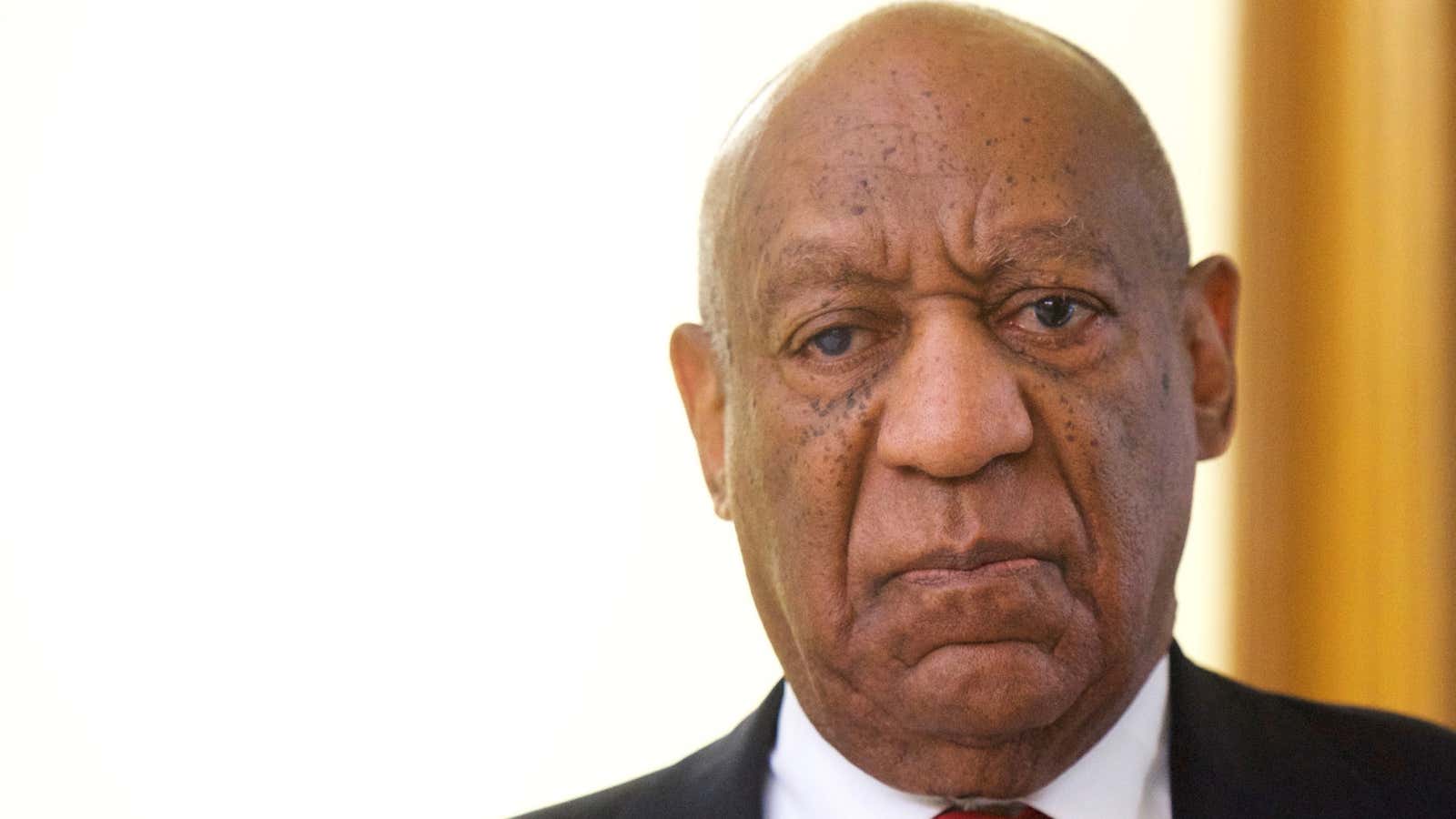Comedian Bill Cosby’s criminal trial concluded with a guilty verdict on April 26, but his trials aren’t over. There’s still a long and arduous legal process ahead.
A Pennsylvania jury found Cosby guilty (paywall) of three counts of felony sexual assault of Andrea Constand, arising from their encounters in 2004. The entertainer is subject to up to 10 years in prison for each count, and the judge can order the sentences be served concurrently, meaning together, or consecutively, meaning one after another. Given that Cosby is 80 years old and claims to be ailing, it’s likely he’ll finish his days doing time either way.
For now, however, he’s out on bail. And his attorneys have already vowed to appeal. “The fight is not over,” attorney Tom Mesereau told reporters outside the Norristown courthouse after the verdict was delivered.
Technically, Cosby can’t appeal before he’s sentenced and a sentencing hearing hasn’t been scheduled yet. It must be set within 60 days of conviction, based on Pennsylvania criminal procedure.
Also notable is that appellate court judges don’t retry cases, so unless grave legal errors occurred, the verdict will stand. Instead, what appeals courts do is review written records for legal errors, considering only technical problems that trial attorneys objected to and preserved that are then are raised in appellate briefs. “A Pennsylvania state appellate court is an error-reviewing court, not a fact-finding court,” explains Lloyd Long, a former state prosecutor who now represents criminal defendants. “It’s not going to repeat the work of the jury.”
Long told Quartz that after Cosby is sentenced, his attorneys could try to challenge the outcome and do so within 10 days of sentencing, but they’re unlikely to succeed. “They can file post-sentencing motions claiming there was insufficient proof for a conviction or that the evidence wasn’t credible,” says Long. “However, those claims are pretty much dead on arrival.” Such efforts usually fail, he notes, because credibility is for fact finders—the jury, in this case—to decide, and they clearly believed the prosecutor’s case.
If Cosby’s attorneys do file a post-sentencing motion, the court will have 120 days to rule on it. After that ruling, the defendant has 30 days to file a notice of appeal. If Cosby’s attorneys decide not to file post-sentencing motions, they’ll need to initiate a direct appeal within 30 days of sentencing.
“Every criminal conviction has the constitutional right to a direct appeal in Pennsylvania,” Long says. That, however, also means state appellate courts are swamped and that the appeals process can take a long time—anywhere from six to 30 months. The overwhelming majority of defendants serve their sentences while an appeal is pending. As such, Cosby, too, is most likely to do time while his counsel continues fighting.
Still, Long “can’t say” whether a probation sentence that keeps Cosby out of custody is possible. And he believes that “any good defense attorney” with an elderly and infirm client, like Cosby, would argue against incarceration, or at least request special placement based on frailty. According to the former prosecutor, the Pennsylvania Department of Corrections considers age and health when making inmate placement determinations, and many elderly felons serve their sentences in the state correctional institute at Laurel Highlands.
Obviously, that’s not where Cosby—or anyone else—thought the once-beloved entertainer would retire.
